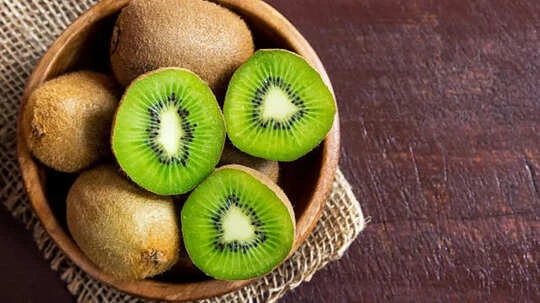Constipation is among the worst problems you can face in daily life. This issue with passing stool can be quite debilitating and discomforting if not treated well in time.
According to doctors, chronic constipation can cause pain, bloating, and nausea. You can treat it with the help of medication, but try natural remedies – one of which is including an all-season sweet, tart fruit, kiwi.
Kiwis have a high water holding capacity along with high viscosity, which helps with faecal bulking and softening. Doctors say the fruit’s laxative effects are also related to the activity of probiotic enzymes.
How do kiwis help relieve constipation?
Kiwi is a powerhouse of natural fibre, along with enzymes that help in smooth bowel movements. Also, it has a probiotic digestive enzyme – actinidin – that breaks down protein, improves gastric emptying, and facilitates laxation through its stimulation of receptors in the colon.
Further, experts say kiwis are also super rich in polyphenol content, which confers digestive health benefits. Polyphenols promote the growth of beneficial gut bacteria like bifidobacteria and fend off harmful ones due to their antibacterial and anti-inflammatory properties.
How many kiwis should you eat daily?
According to doctors, eating two kiwis daily is recommended for relieving constipation and helping you get rid of bloating and indigestion.
This consumption also reduces the amount of straining needed during bowel movements, further alleviating constipation symptoms.
How can you add kiwi to your diet?
If eating the fruit simply is not your thing, or you get bored easily, there are a few other ways you can try this green fruit in your daily diet.
Eat it raw
Slice up a kiwi and enjoy it as a snack or add it to fruit salads, smoothies, or oatmeal.
Add it to recipes
Kiwi pairs well with citrus fruits, as well as leafy greens
Kiwi juice
Kiwi juice can be a convenient way to get your daily dose of fibre and actinidain in your diet.
What causes constipation?
Doctors say there are many causes of constipation, including lifestyle factors, medications, and medical conditions. Common lifestyle causes of constipation include:
- Not eating enough fibre
- Not drinking enough water, which leads to dehydration
- Not getting enough exercise
- Changes in your regular routine, such as traveling, eating, or going to bed at different times
- Consuming large amounts of milk or cheese
- High levels of unmanaged stress
